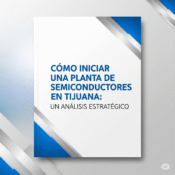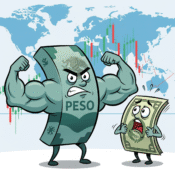Trump is Helping Mexico
The common narrative portrays Mexico as a casualty of the recent tariff escalations. However, a closer examination reveals a more nuanced reality: Mexico is strategically positioned to emerge as a significant beneficiary.
The imposition of tariffs, while causing initial market turbulence, forces a recalibration of North American supply chains. For too long, U.S. manufacturing has leaned heavily on distant overseas production, notably in China. This dependence has eroded domestic industries. Now, with increased tariffs rendering Chinese imports less competitive, businesses are compelled to seek alternatives within closer proximity.
Mexico, with its advantageous geographical location, established manufacturing infrastructure, and skilled workforce, presents a compelling option. The USMCA trade agreement, despite ongoing adjustments, solidifies the trade framework between the United States, Mexico, and Canada, offering a degree of predictability that other nations lack.
While short-term disruptions are inevitable, the long-term trajectory points towards Mexico's economic strengthening. The redistribution of manufacturing away from China and towards Mexico will stimulate economic growth. This is a matter of basic economics. The trade disputes are compelling the United states to increase its dependence on its north american trading partners. And Mexico is the nation that stands to gain the most from this.
Therefore, while the focus of mainstream media is on the possible negative outcomes, objective analysis shows the long term positive outcomes for Mexico. Mexico is not a victim, but a nation that is well situated to profit from the changing economic landscape.



